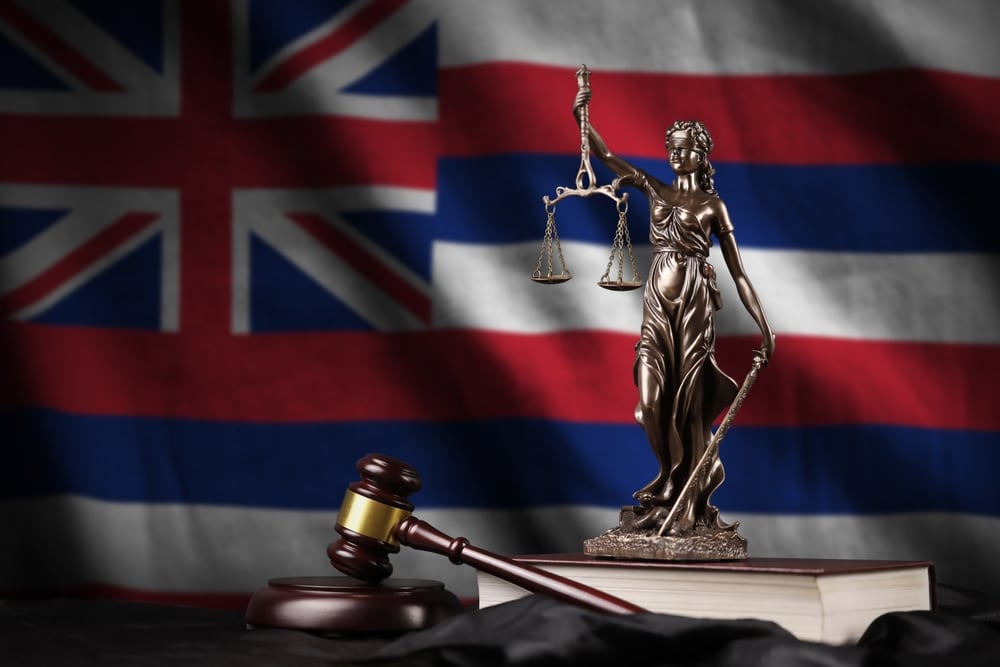Hawaii Bankruptcy Guide

Introduction
Understanding bankruptcy in Hawaii requires knowledge of both federal bankruptcy laws and state-specific provisions that reflect Hawaii’s unique island geography, cultural heritage, and tourism-based economy. The state’s bankruptcy system has evolved to address challenges specific to island living and cultural preservation.
Hawaii operates a single federal bankruptcy district, with procedures designed to accommodate residents across all islands. The court system has developed flexible approaches to ensure accessibility despite geographical challenges, including extensive use of remote appearances for neighbor island residents.
Hawaii’s exemption system uniquely offers residents a choice between state and federal exemptions, reflecting the state’s high cost of living and distinctive property considerations. Special protections exist for native Hawaiian cultural rights and properties.
Whether facing financial difficulties due to tourism industry fluctuations, natural disasters, or other circumstances, understanding Hawaii’s specific bankruptcy provisions becomes crucial for making informed decisions about your financial future.
This guide provides general information about bankruptcy in Hawaii but should not be considered legal advice. Always consult with a qualified bankruptcy attorney for guidance specific to your situation.

State Bankruptcy Courts
District of Hawaii
The District of Hawaii Bankruptcy Court operates from its headquarters in Honolulu, serving all Hawaiian islands. The court’s website (www.hib.uscourts.gov) provides comprehensive resources for attorneys and pro se filers.
Remote appearances are routinely permitted for neighbor island residents, reducing the burden of inter-island travel. Electronic filing is mandatory for attorneys, though paper filing remains available for pro se filers.
The court has developed specific procedures to accommodate Hawaii’s geographical challenges and cultural considerations, including flexible scheduling and remote participation options.
Hawaii Property Exemptions
Homestead Exemption
Hawaii provides a homestead exemption of $30,000 per individual, which doubles to $60,000 for heads of household, elderly (65+), or disabled residents. This protection extends to condominiums and co-ops, reflecting Hawaii’s diverse housing market.
Special provisions exist for native Hawaiian Kuleana land, recognizing and protecting traditional land rights. The homestead exemption acknowledges Hawaii’s exceptionally high property values while providing meaningful protection for residents.
Understanding these limits helps residents make informed decisions about protecting their homes through bankruptcy, particularly given Hawaii’s unique real estate market.
Personal Property Exemptions
Hawaii protects various personal items, including up to $2,575 in vehicle equity and household goods up to $1,000 per item. The state provides unlimited exemptions for clothing, books, and family photos.
Unique to Hawaii, traditional cultural items receive special protection, recognizing their importance beyond monetary value. Fishing equipment up to $2,500 receives protection, acknowledging its role in both cultural practices and subsistence.
These exemptions reflect Hawaii’s commitment to preserving both practical necessities and cultural heritage.
Wage Exemptions
Hawaii protects the greater of 75% of disposable earnings or 30 times the federal minimum wage. Enhanced protections exist for heads of families and tourism industry workers with seasonal income patterns.
These protections help ensure stable income during bankruptcy proceedings while acknowledging the unique challenges of Hawaii’s tourism-dependent economy.
Tools of Trade
Special considerations exist for professional diving equipment and maritime tools, reflecting Hawaii’s ocean-based economy.
Agricultural tools receive protection, supporting both traditional and modern farming practices. These provisions help ensure residents can maintain their ability to earn a living during and after bankruptcy.
Special Hawaii Considerations
State-Specific Requirements
Bankruptcy filers must complete approved credit counseling and meet residency requirements. Special considerations exist for island-specific issues and high cost of living adjustments.
Hawaii’s unique cost structure affects many aspects of bankruptcy planning, from means testing to exemption choices.
Median Income Thresholds
Current Hawaii median income thresholds:
- Single person: $72,876
- Family of 2: $89,654
- Family of 3: $105,743
- Family of 4: $124,893
- Add $9,900 for each additional member
Legal Aid Organizations
Hawaii offers several legal aid resources:
- Legal Aid Society of Hawaii (800-499-4302, www.legalaidhawaii.org)
- Volunteer Legal Services Hawaii
- Native Hawaiian Legal Corporation
- University of Hawaii Elder Law Program
These organizations provide culturally sensitive assistance throughout the state.
Credit Counseling Agencies
Approved agencies offer:
- Online options for all islands
- Multiple language services
- Cultural sensitivity training
- Remote counseling options
Special Circumstances
Island-Specific Issues
Geographic considerations include:
- Inter-island travel requirements
- Remote appearance availability
- Island-specific property values
- Neighbor island accessibility
Natural Disasters
Natural disaster provisions address:
- Volcano activity impact
- Tsunami preparedness
- Hurricane procedures
- Emergency filing options
Tourism Industry Impact
Tourism considerations include:
- Seasonal income protection
- Hotel/hospitality worker provisions
- Tourism-dependent business issues
- Service industry accommodations
Post-Bankruptcy Considerations
Property Considerations
Property issues include:
- High property costs
- Lease and rental challenges
- Condo association obligations
- Time share commitments
Employment Impact
Property issues include:
- High property costs
- Lease and rental challenges
- Condo association obligations
- Time share commitments
Cultural Considerations
Cultural protections include:
- Native Hawaiian rights preservation
- Traditional practice protection
- Cultural property safeguards
- Community obligation respect
Conclusion
Successfully navigating bankruptcy in Hawaii requires understanding both federal bankruptcy law and state-specific provisions. The state’s unique geography, cultural heritage, and tourism-based economy have shaped distinct protections and procedures.
Hawaii’s flexible exemption system, allowing choice between state and federal exemptions, provides important options for residents seeking bankruptcy relief. Special provisions for cultural property, traditional practices, and island-specific challenges reflect Hawaii’s unique character.
Working with qualified legal professionals familiar with Hawaii bankruptcy law remains crucial for successful outcomes. The state’s complex exemption choices and local requirements demand careful attention to detail.
Local resources, including culturally sensitive legal aid organizations and approved credit counseling agencies, provide valuable assistance throughout the bankruptcy process. These resources help ensure access to bankruptcy protection for all eligible Hawaii residents.
Remember that while bankruptcy represents a serious financial decision, it also offers an opportunity for a fresh start. Understanding Hawaii’s specific requirements and protections helps maximize the benefits of bankruptcy while minimizing potential complications.
